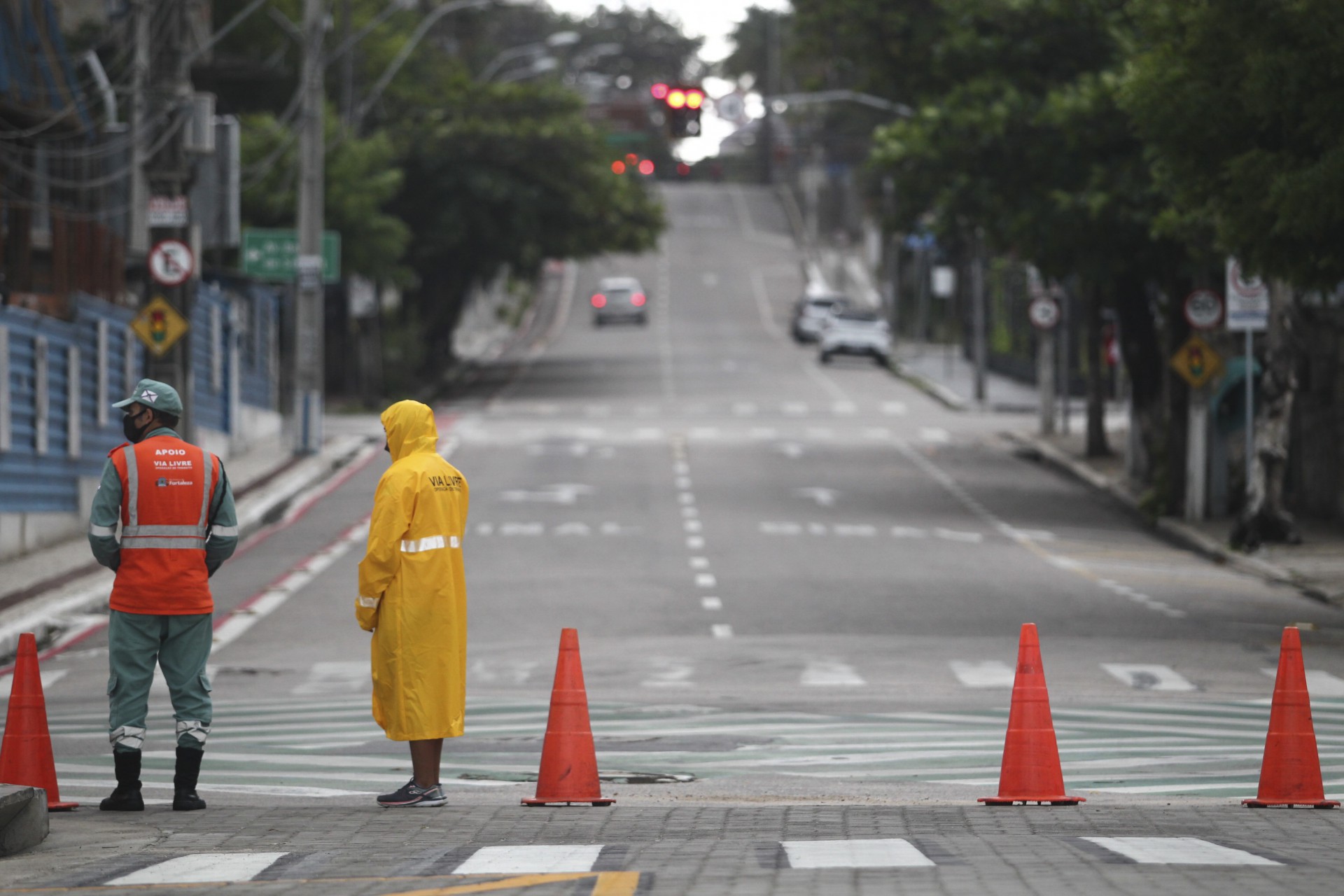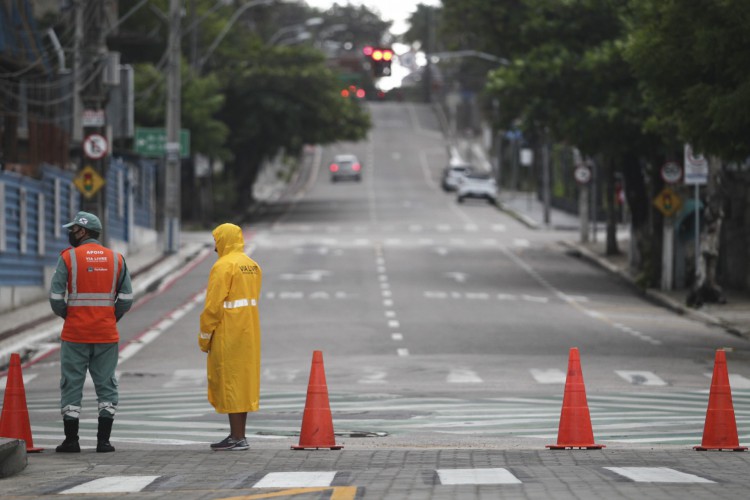
[ad_1]
Public spaces cannot be used during the period. (Photo: Fábio Lima / THE PEOPLE)
With the decision to decree the closure throughout the state, the prohibition of the operation of non-essential activities, previously restricted to Fortaleza and the municipalities that had made this decision through the municipal administration, now applies to the entire territory of Ceará . The rigid isolation begins at zero this Saturday the 13th and continues until the 21st. The measure also extended the confinement in Fortaleza, previously valid until the 18th.
In a live broadcast on the night of Thursday 11, Governor Camilo Santana (PT) affirmed that the criteria follow the same for activities considered essential and that can function during the period.
See the list of what can work in Ceará during the blackout period
– Industry and construction sectors;
– Press and media services and telecommunications in general;
– Call center services;
– Medical and dental establishments for emergency services, hospitals, clinical analysis laboratories, pharmaceuticals, physiotherapy and vaccination clinics;
– Drive thru services in cafeterias and similar establishments;
– Convenience stores of gas stations, serving customers of snacks or meals on the premises is prohibited;
– Department stores that have proven sectors for the sale of food products;
– Trade in building materials;
– Elevator maintenance service companies;
– Mail;
– Distributors and resellers of water and gas;
– Logistics companies;
– Electricity distributors, telecommunications services;
– Private security;
– Gas stations;
– Funerals;
– banking establishments;
– Lotteries;
– Bakeries, internal consumption is prohibited;
– Veterinary clinics;
– Animal product stores;
– Laundries;
– Supermarkets / similar
In direct, the governor said that the decision was motivated by the accelerated growth of the indices. He cited, for example, that last week 78 municipalities in Ceará were at risk considered high or very high in relation to the advance of the pandemic, according to the classification stipulated by the Secretary of Health of Ceará (Sesa); this week, the number of municipalities in this condition is 130.
He also noted that the speed of transmission of the virus has been even stronger in this second wave of cases and has reached a lower age range compared to last year, the average number of people hospitalized is 53 to 57 years.
“The new variant is being very aggressive for an increasingly young population in Ceará and this further exacerbates the pressure on the health system,” said the governor.